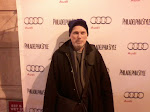Upstate and in Kabul
My father spent 2001 dying. I would drive from TriBeCa north of the World Trade Center, up Highway 81 through Camp Drum, N.Y., to Kingston, Ontario. After 9/11 the WTC burned for six months. I smelled it everywhere, even in Kingston. I decided my clothes and shoes must be contaminated and started to discard. Finally my doctor said I had sinusitis. Many TriBeCa people had sinusitis. My father died of a brain tumor 11/14. He had once stayed at the W.T.C. Marriott and so would watch the collapsing towers as they played over and over on television, but he couldn’t understand. In October 2001 driving back to New York, the local Watertown newspaper said soldiers from Camp Drum were in Afghanistan. Two days later it was in The New York Times. In September I had written Michael Wilding, the Australian novelist, that US troops would be in Kabul by Christmas and Baghdad by Easter. I was more or less right but Baghdad has been, let’s say, problematic. I demonstrated like so many against that disastrous invasion. Whether the "surge" worked or not, Obama has been crowned Prez. The Watertown Daily Times on Washington Street in Watertown continues to turn out material on the soldiers of the Tenth Mountain Division in and out of Afghanistan, and offers me, every time I’m there, an up-close perspective of America’s vengeful 21st century wars.

